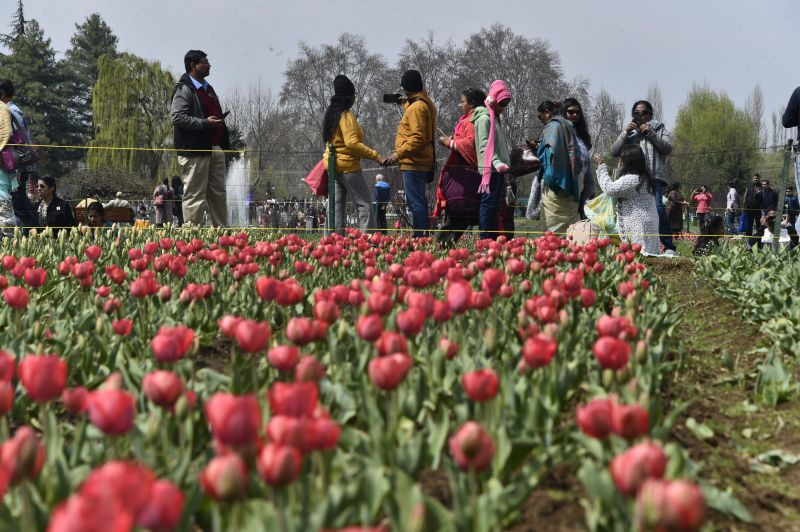Srinagar: Give the credit where it is due. The former J&K Chief Minister, G N Azad launched first Tulip Garden of Kashmir during his regime located at the foothills of the Zabarwan.
It has been a tourism sensation since then. This year, till date, nearly 75000 people have visited this garden.
And now, the tulip exhibitions are going over all along. To watch the mesmerizing floral view, you need not to visit Srinagar alone, there are other options too.
SKUAST-K’s Mountain Research and Tulip Production Centre at Tangpawa Sagam, Kokernag, is now emerging as a new tourist hotspot, attracting both local and domestic visitors.
Spread over 400 kanals, the first phase of the project has seen tulips bloom on 5 kanals for tulip bulb production. This initiative, led by the Sher-e-Kashmir University of Agricultural Sciences and Technology of Kashmir (SKUAST-K), aims to enhance local tulip cultivation.
The tulip center gained widespread attention on Eid-ul-Fitr, largely due to social media, resulting in an increase in tourist footfall and providing economic opportunities for locals.
Besides visitors, domestic tourists are also exploring the site. “This is a ticket-free center and has become a tulip attraction. Many visitors coming to the Kokernag garden also make their way here.”
That is not all, with over one lakh bulbs, to strengthen the floriculture sector in Pulwama, the Council of Scientific and Industrial Research – Indian Institute of Integrative Medicine (CSIR-IIIM), Field Station Bonera, a mini Tulip Garden was thrown open for the public on Wednesday.
As part of the program, over one lakh tulip bulbs were successfully cultivated across 12 kanals of land at the Field Station.
Officials from CSIR-IIIM highlighted the role of scientific innovation in agriculture, emphasizing that this effort would pave the way for self-sufficiency in tulip production.
“The project is expected to strengthen the floriculture industry by fostering research, enabling commercial cultivation, and generating employment opportunities. By promoting local tulip farming, this initiative stands to benefit both the agricultural community and the broader economy, marking a significant step towards sustainable growth in the floriculture sector.”
People from different areas of Kashmir, who visited the station, said that this station has been turned into a mini Tulip garden, and people have enjoyed it here.







